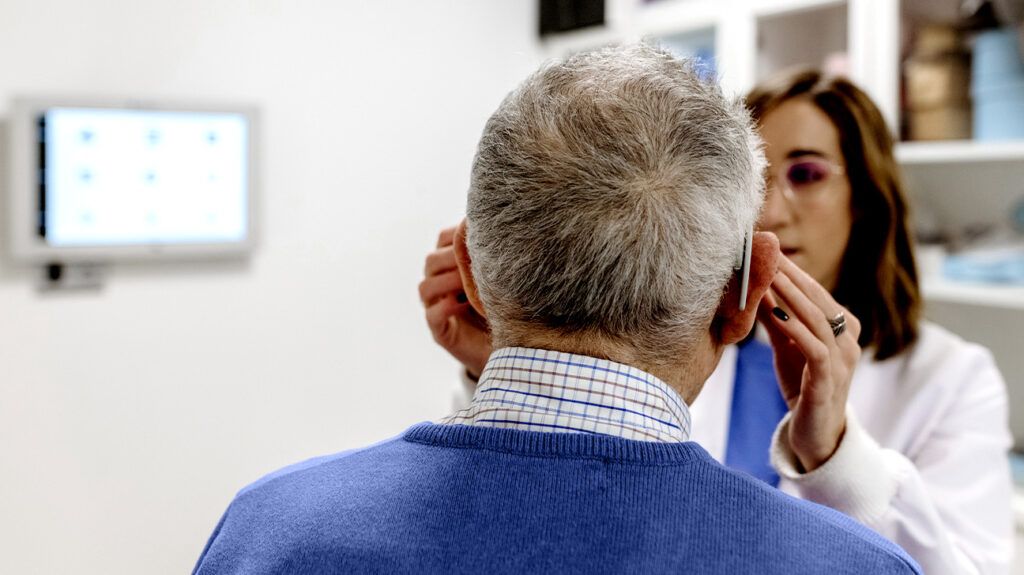Routine Eye Exams Could Detect Early Signs of Alzheimer’s Disease

Emerging research suggests that routine eye exams, focusing on the retina, could potentially help detect early signs of Alzheimer’s disease, paving the way for earlier diagnosis and intervention.
Routine Eye Exams Could Detect Early Signs of Alzheimer’s Disease

Changes in the eyes, particularly in the retina and its blood vessels, may help in early detection of Alzheimer’s disease. Recent studies in mice indicate that vascular changes in the eye occur simultaneously with those in the brain, suggesting that ocular examinations could become a non-invasive way to identify cognitive decline earlier.
Key Highlights
- Scientists believe eye health assessments could serve as early indicators of Alzheimer’s.
- Research shows vascular alterations in the retina mirror those in the brain, associated with Alzheimer’s progression.
- Mouse studies reveal that retinal blood vessel changes precede nerve loss, offering potential for early diagnosis.
Recent research involving mice with genetic variants linked to Alzheimer’s examined the correlation between eye and brain vascular changes. The findings suggest that by analyzing blood vessels in the retina, healthcare providers might detect Alzheimer’s disease earlier, potentially improving patient outcomes.
The Brain-Eye Connection
This research spotlights the retina's potential as a window into brain health. Changes in retinal blood vessels tend to reflect cerebrovascular issues common in Alzheimer’s, making eye exams a promising tool for early detection.
Further Research Needed
While promising, these findings are preliminary. More studies, especially in humans, are necessary to validate retinal imaging as a reliable diagnostic marker for Alzheimer’s and related dementias.
Implications for Future Diagnostics
Experts suggest that incorporating retinal scans in routine eye exams could, in the future, help screen for Alzheimer’s, enabling earlier intervention and better disease management. As research advances, the eye may become a key frontier in the fight against neurodegenerative diseases.
"Eyes are easily accessible and non-invasive, making them an ideal site for early biomarkers of Alzheimer’s," says Dr. Daniel Romaus-Sanjurjo.
Conclusion
The evolving understanding of eye-brain connections underscores the importance of eye health in neurological disease detection. Continued research could pave the way for simple, cost-effective screening tools leveraging advanced imaging of the retina.
Learn more about the ongoing research into eye health and Alzheimer’s detection.
Stay Updated with Mia's Feed
Get the latest health & wellness insights delivered straight to your inbox.
Related Articles
Genetic Mutation Linked to Severe Paralysis After Mild Infections in Children
Research has uncovered a genetic mutation in the RCC1 gene that causes severe nerve damage and paralysis in children following mild infections, offering new hope for diagnosis and treatment.
Elevated BMI Levels Increase Risk of Post-Bariatric Surgery Complications
Higher body mass index (BMI), especially over 50, significantly raises the risk of complications after bariatric surgery, according to recent research. This study provides crucial insights for improving patient safety and outcomes.
Hidden Body Fat Accelerates Heart Aging Through Visceral Fat
New research links hidden visceral fat to accelerated heart aging, highlighting the importance of fat distribution in cardiovascular health and potential hormone influences.
A Key Enzyme Regulates Cell Fate During Intestinal Regeneration
Memorial Sloan Kettering researchers have identified a metabolic enzyme, OGDH, that directs intestinal stem cell fate, influencing gut regeneration and healing during inflammation by regulating cell lineage decisions through metabolic pathways.



